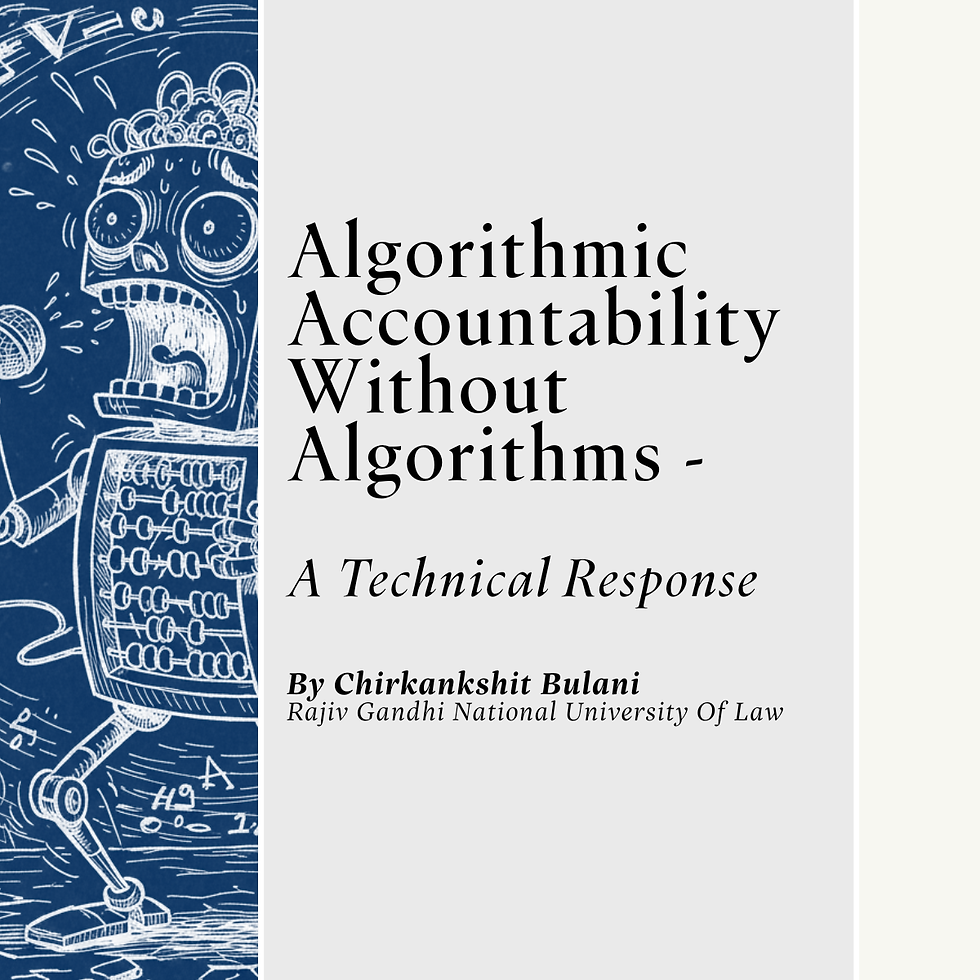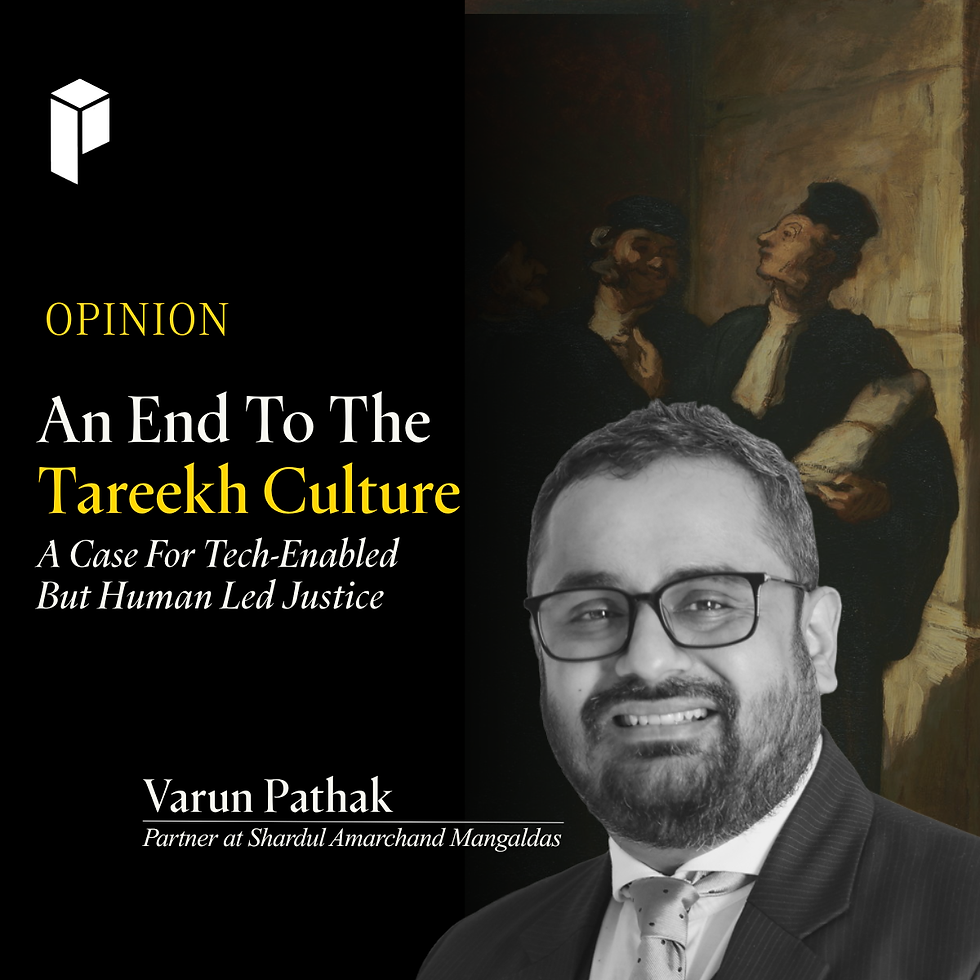What are Ethical Issues of Human Cloning?
- The Legal Journal On Technology
- Sep 28, 2020
- 6 min read
Updated: May 27, 2025
By Mihika Swaroop, Student at ICFAI University, Dehradun, Uttarakhand

In human cloning or the production of a genetic copy of an individual, there are many unknowns. Please note that human cloning or human reproductive cloning which moves the embryo to a human womb, and ends while the development of the embryo that cannot develop outside a cell cluster is not inserted into a woman by non-reproductive cloning.
ETHICAL ISSUES:
PHYSICAL IMPLICATIONS:
In human cloning, there are enormous margins of error that may lead to our very first ethical problem. It is highly certain that there would be some nonviable or deformed embryos. The first of these can be a physical problem, and the second can be a mental problem. The foetus is inserted correctly, and conception is induced. This could lead to a drastic rise in abortion and miscarriages. The clone is exceptionally likely to be deformed or abnormal. At this point, what happens to the clone? Note that the purpose of cloning is to create a person that is the same as another. If it is not identical, then does this give the right to kill the clone, or does it have the right to live? Are the people responsible for it who wanted the clone? What if it is not an exact replica that they want? What if a few years is needed to know that the clone is an accurate copy? Who is responsible for the errors and consequences?
SOCIAL IMPLICATIONS:
There is no sexual reproduction of clones, so who are the parents in a clone? Who is in charge of the clone management? Another legal question is that,can a clone would or should not become autonomous. Is it all right to create a person who is always reliant on another person? This contributes to the question of who is in charge of supporting them in their lives. A copy of someone is the concept behind a clone. Most people consider every aspect of a person, including personality, if they want to replicate. However,a person is not just determined by inherited traits.
CLONE RIGHTS:
The rights of the clone are one of the most ethical problems. If the clone succeeds and becomes independent, what are its rights?
Which if the clone wants anything other than the person who created it? It can be argued that the clone was created for a specific reason and otherwise would not have any value. On the other hand, an independent adult can decide for themselves. `
MORAL ISSUES:
There are also moral and ethical issues toward human cloning. These universal ideals are most important to citizens of various faiths. US President Clinton banned funding for human cloning prosecutions and requested the consultative committees in 90, because it was a challenging work due to differences in moral and ethical principles, to report on the opinions of people. Therefore, the National Bioethics Advisory Commission consulted scientists, theologians, doctors to collect the legal, moral, and safety data on the organism generated by the nuclear transfer of the somatic cells, which was the main problem. However, it poses concerns about the social relationships of clones (families and relationships between generations), as these can be viewed as objects or disrupt the family structure.
RELIGIOUS VIEWS:
The technology has many positive and harmful effects on human health and is thus forbidden to most religious scholars with the cloning of people, which again has many advantages and disadvantages. Before the embossed stage, it can be approved. Iran is one of the first countries to have cloned for medicinal purposes following Islamic principles. In order to observe the ethical principles in each stage of the embryo, they have used this approach for organ transplantation by creating the cell culture. Therefore, all appropriate measurements are allowed to be made for therapeutic and testing purposes.
CLONE AS AN INDIVIDUALIZED ENTITY AND STAGES OF HUMAN DEVELOPMENT:
Cloning is the scientific use of a human embryo, but ethics and moral values condemn it because the human embryos are killed. Some see the embryo as an "individualized entity" as the initial stage of human development, but there are varying opinions as to what stage a person must be treated in contrast to his or her dignity. The embryo is seen as an "individualized entity" or as a person, which maintains all rights as human beings. There is, therefore, a distinction between the various stages of the development of human embryos. According to the Holy Quran, "We created man with the extraction of clay, then We put him in protection shelter, then we made a clot of the drop, then we made tissue from the clot, then we formed bones of the tissue, then we covered the bones in the body. God, the Greatest of Creation, be blessed. "We may clone a stem cell in pre-solution, according to these verses, and at this point, the removal of the foetus is likewise a sin; but, its penalty is lower than that of a lethal abortion.
ROLE OF CLONING IN RESEARCH AND HUMAN HEALTH
In human health, cloning also plays a significant role in research findings. The first separation of human embryonic cells occurred in 1998. It is used to treat disorders such as neurologic conditions, Parkinson's disease, and cardiac diseases. While cloning still has all these benefits, science, ethical, policymakers, and religious scholars have prohibited cloning of human beings because of its many problems, both legal, emotional, and moral, that have also been posted by the people; it is seriously prohibited because it is against "playing God." As Islam says, only the Almighty Allah can create or kill any cloning that equates to God's creation, scientists cannot take God's position, and Muslim scientists forbid cloning since it has human and bio-health effects and risks of all sorts. In addition, as the ability of cloned organisms to develop into an adult has been lost, so medical research has progressed and is aligned with stem cell culture to cure many diseases as well as to improve fertility.
LOW SURVIVAL RATE OF CLONES
There are many threats to clones' growth and survival, and scientists who know about the dangers and hazards of cloning are the most important because most embryos are destroyed before their birth, and the clones may have some abnormalities at 0,3% for cows and < 1% for sheep, the proportion of cloned species to the age of adulthood is meager. The researchers saw a loss of embryos and foetuses as the development of the clone. They conducted a human blast cyst experiment. They collected 242 eggs from 16 women who only developed 30 embryos. Human cloning can lead to psychological problems such as psychological distress that influence an organism's uniqueness and individuality. Also, this can cause any problems in twin growth before or later.
CONCLUSION
Because of absolute moral and ethical values, cloning is forbidden. It is often faced with various physical, psychological, and social problems. In Islamic words, embryo cloning is a sin, and it is against nature because of the dangers faced by an embryo in a cloning process. Islam, however, offers its right to enforce only all moral and ethical principles for therapeutic and scientific purposes during human embryo cloning. Talking about other religions, we see that Hindus are persuaded of karma or "intended acts," and the creation of a personal clone may most likely be regarded as selfish and imprudent, therefore contradictory to dharma values and harmful actions. They see no reason to tamper with the processes of life in this way. The controversy on the nature of human cloning includes Christians taking a variety of positions. The cloning of the sheep by Dolly on 5 July 1996, and the likelihood of cloning human beings, have forced Christian leaders to adopt an ethical stand on their morality. Although there is a general practice by many Christians, such as Roman Catholics and most evangelical ministers, including Southern Baptists, different opinions from other Christian confessions vary and are frequently contradictory. Sikhs will embrace cloning to help people in the fight against infertility. In this way, the aim is that human life is promoted and infertile help. Some Sikhs disagree with cloning because they consider it to be an unnatural abuse of creative power supposed to be only of God.
BIBLIOGRAPHY









Comments